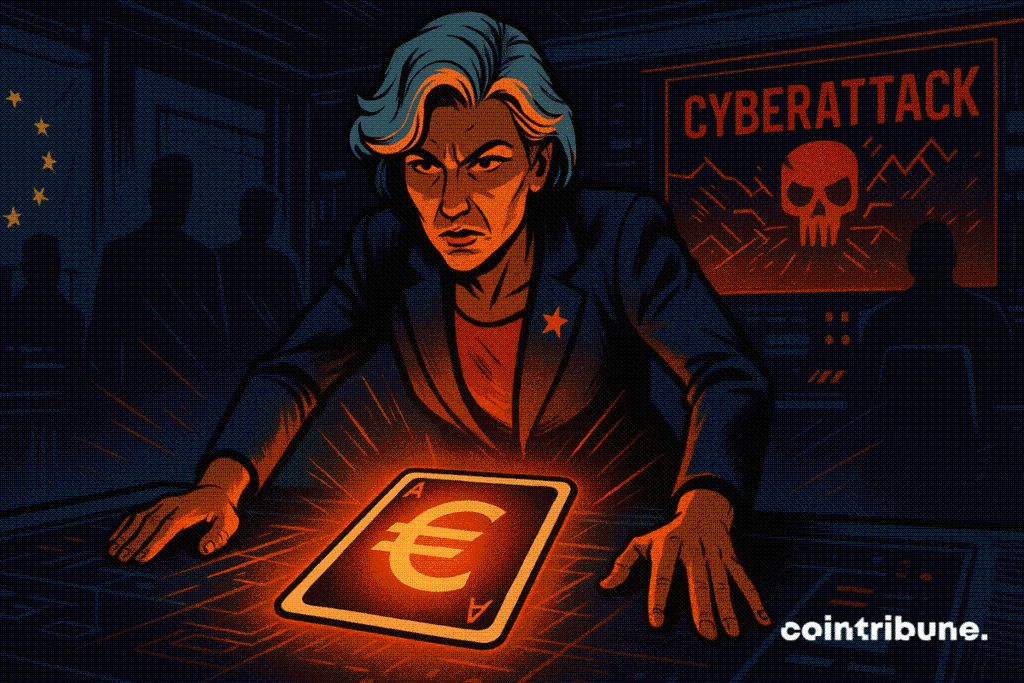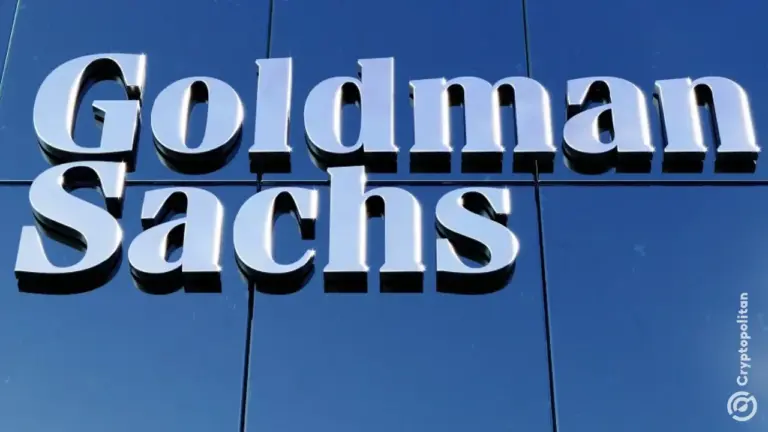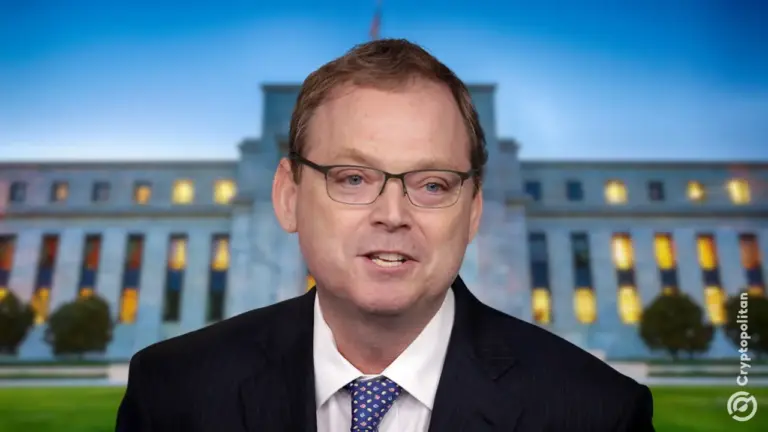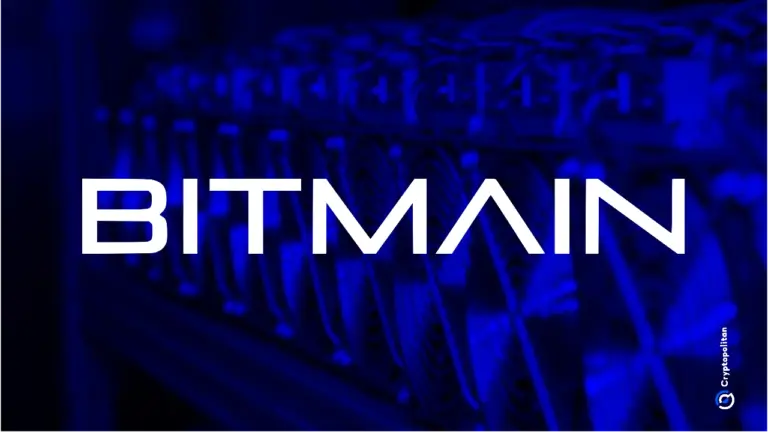Digital Euro: The ECB Plays Its Last Card
The European Central Bank intensifies its communication around the digital euro. Piero Cipollone, board member, presented new arguments in favor of the project to the European Parliament. Will the ECB manage to rally users who are still largely detractors?

In brief
- For the ECB, the digital euro would serve as a backup solution in major incidents (cyberattacks, application failures).
- An “offline” option would allow local payments during a power outage, with later synchronization.
- The project aims to reduce dependence on private payment solutions, often non-European.
The ECB defends its digital euro as a bulwark against cyberattacks
Piero Cipollone, ECB board member, unveiled this Thursday before Brussels MEPs. He defends the digital euro as a resilience tool against cyber threats.
His example strikes for its simplicity: if a cyberattack takes down “a bank’s application” but leaves the central system intact, the user could still access their account via the ECB’s digital euro application.
The statement fits within a worrying context : cyberattacks against financial infrastructures are multiplying and causing service interruptions. The digital euro would then offer a crucial bypass to maintain economic activity.
The argument is primarily operational. As society moves away from cash, access to physical currency becomes uncertain in emergencies. The digital euro would complement cash, which Cipollone describes as our “only real fallback solution” today to guarantee a second safety net.
An offline feature is also under study. It would allow local payments during a power outage, with deferred synchronization once the network is restored. The stated goal is to improve service continuity.
More broadly, the project aims to reduce single points of failure by adding a public payment channel, standardized and interoperable, to limit exposure to private application failures and congestion at providers.
Europe facing the challenge of monetary sovereignty
This announcement fits into a broader battle for European monetary sovereignty. Christine Lagarde recently hardened her stance against foreign stablecoins , demanding “firm” guarantees for any issuer wishing to operate within the Union.
The numbers reveal the magnitude of the challenge. Nearly 290 billion dollars worth of stablecoins currently circulate worldwide. Tether’s USDT accounts for 60% of this market, reinforcing the dollar’s hegemony in the digital economy.
The digital euro also aims to counter the growing influence of Apple Pay, Google Pay, or PayPal. These American tech giants dominate European digital payments. A situation the ECB considers unacceptable.
The European project is progressing concretely. Technically ready according to authorities, the digital euro could be launched before the end of 2025. Tight timing in the face of the American competition that is multiplying favorable regulatory initiatives.
The ECB is playing big with this strategy. Europe must catch up on technological delay while preserving its monetary sovereignty. The digital euro represents much more than a simple technical project: it is the future of European financial autonomy at stake in this digital battle.
Disclaimer: The content of this article solely reflects the author's opinion and does not represent the platform in any capacity. This article is not intended to serve as a reference for making investment decisions.
You may also like
Goldman and T. Rowe sign $1 billion partnership as Wall Street targets retirement cash
Share link:In this post: Goldman Sachs is buying a $1 billion, 3.5% stake in T. Rowe Price to push private assets into retirement accounts. The partnership will launch target-date funds, co-branded portfolios, and advice services by mid-2025. Citigroup also announced a deal giving BlackRock $80 billion in client assets to manage starting in Q4.

Fed chair contender Hassett slams central bank for mission creep and fading independence
Share link:In this post: Kevin Hassett accused the Fed of losing independence and overstepping its mandate. He slammed the job data system as broken and called for urgent modernization. Kevin backed a full review of the Fed’s roles in policy, regulation, and research.

Bitmain is hit with a lawsuit alleging breach of hosting agreement
Share link:In this post: Old Const says Bitmain faked breaches to end their deal and seize mining equipment. The company wants a court order stating that disputes must stay in Texas based on the agreement. Old Const is seeking an injunction, damages, and legal fees from Bitmain.

El Salvador joins the gold rush and acquires 13,999 troy ounces
Share link:In this post: El Salvador’s central bank bought 13,999 troy ounces of gold worth $50 million. The bank says gold will diversify reserves and provide stability, especially as Bitcoin holdings remain volatile. The move follows the global trend of central banks buying over 1,000 tonnes of gold collectively.

